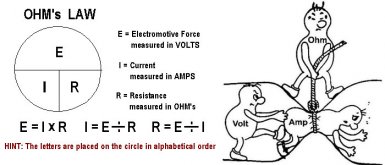John Frum
Tell me your problems
- Joined
- Nov 30, 2019
- Messages
- 15,233
Is there a resource on this site to describe the really basic stuff.
It seems to me that core of the onion is the understanding of the primitives which are
A better understand comes from understanding how these primitives relate to one another.
That is the next layer of the onion.
Do you agree or disagree?
Different field but related idea, how do you feel about ham license requiring the morse code?
It seems to me that core of the onion is the understanding of the primitives which are
- voltage
- resistance
- current
A better understand comes from understanding how these primitives relate to one another.
That is the next layer of the onion.
Do you agree or disagree?
Different field but related idea, how do you feel about ham license requiring the morse code?




.png)
.png)
.png)
.png)
.png)
.png)
.png)